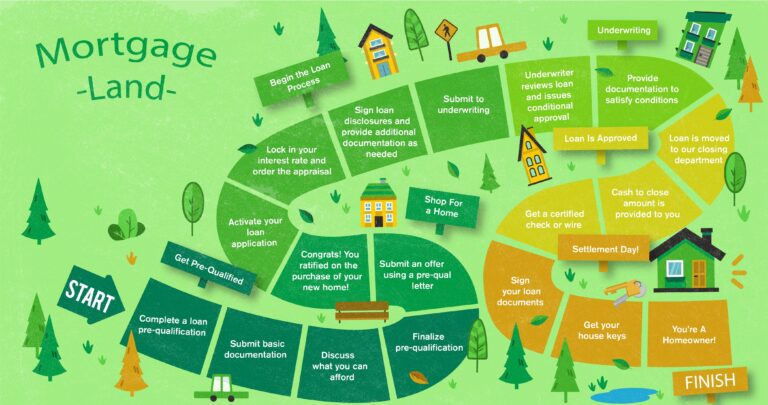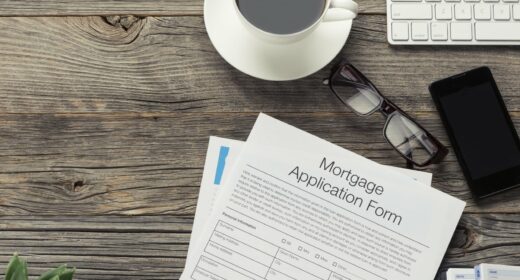Owning a house and land is a dream for many people. It provides a sense of stability, security, and the freedom to create a space that truly reflects your personality and lifestyle. However, purchasing a property outright may not always be financially feasible. That’s where a mortgage comes into play. In this article, we will explore the process of Get a mortgage on a house and land, its benefits, challenges, and provide valuable tips to help you navigate the journey.
Introduction
What is a mortgage?
A mortgage is a loan obtained from a financial institution, such as a bank or a mortgage lender, to finance the purchase of a property. It allows individuals to borrow a significant amount of money, typically for a long term, while using the property itself as collateral. The borrowed amount, known as the principal, is repaid in regular installments over the loan term, along with interest.
Importance of getting a mortgage on a house and land
Getting a mortgage on a house and land can be a strategic financial decision. It enables individuals to fulfill their homeownership dreams without having to drain their savings entirely. By spreading the cost over a longer period, mortgages make owning a property more affordable and accessible. Additionally, mortgages offer several advantages, such as building equity, potential tax benefits, and long-term cost savings.
Understanding Mortgages
Before diving into the process of obtaining a mortgage, it’s essential to understand the different types of mortgages available and the factors to consider before making a decision.
Types of mortgages
Mortgages come in various types, including fixed-rate mortgages and adjustable-rate mortgages (ARMs). A fixed-rate mortgage locks in a specific interest rate for the entire loan term, providing predictable monthly payments. On the other hand, ARMs offer an initial fixed-rate period, followed by adjustable rates that fluctuate based on market conditions. It’s crucial to evaluate your financial goals and risk tolerance to determine the most suitable mortgage type for your needs.
Factors to consider before getting a mortgage
Several factors should be taken into account before getting a mortgage. These include your credit score, debt-to-income ratio, employment stability, and the amount of down payment you can afford. Lenders assess these factors to determine your eligibility for a mortgage and the interest rate you qualify for. It is important to review your financial situation and ensure you meet the necessary requirements before proceeding with a mortgage application.
Steps to Get a Mortgage on a House and Land
To successfully obtain a mortgage on a house and land, it is crucial to follow a systematic approach. The following steps will guide you through the process:

Assessing your financial situation
Before you begin your mortgage journey, take a close look at your financial situation. Calculate your monthly income, expenses, and existing debts. Determine how much you can comfortably allocate towards mortgage payments each month.
Researching mortgage lenders
Research various mortgage lenders to find the one that suits your needs. Compare interest rates, loan terms, fees, and customer reviews. A reputable lender with excellent customer service will guide you through the process and ensure a smooth experience.
Getting pre-approved for a mortgage
Consider getting pre-approved for a mortgage before house hunting. Pre-approval provides an estimate of the loan amount you qualify for, giving you a clear budget to work with. It also demonstrates to sellers that you are a serious buyer.
Finding the right house and land
Once pre-approved, you can start searching for the perfect house and land. Consider factors such as location, size, amenities, and proximity to schools, workplaces, and other essential facilities. Work with a real estate agent who understands your preferences and can assist you in finding suitable options.
Applying for a mortgage
Once you find your dream property, it’s time to apply for a mortgage. Prepare all the necessary documents, such as identification, income statements, tax returns, bank statements, and employment verification. Fill out the mortgage application accurately and submit it to your chosen lender.
The mortgage approval process
After submitting your application, the lender will review it thoroughly. They will assess your creditworthiness, employment stability, and the property’s value. The approval process may take some time, so it’s essential to remain patient. Once approved, you will receive a mortgage offer outlining the loan terms and conditions.
Benefits of Getting a Mortgage on a House and Land
Getting a mortgage on a house and land offers several advantages:

Homeownership and building equity
A mortgage allows you to become a homeowner and build equity over time. As you make mortgage payments, you gradually own a larger portion of the property. This equity can be used for future investments, renovations, or even as collateral for other financial needs.
Long-term cost savings
While a mortgage involves monthly payments, it can lead to long-term cost savings. Rent payments often increase over time, whereas mortgage payments remain stable, especially if you have a fixed-rate mortgage. Additionally, property values tend to appreciate over the years, potentially increasing your investment’s worth.
Potential tax advantages
Homeownership comes with potential tax advantages. Mortgage interest and property taxes are often tax-deductible, reducing your overall tax burden. Consult with a tax professional to understand the specific deductions available in your region.
Flexibility and freedom
Owning a property through a mortgage provides flexibility and freedom. You can customize your space, make renovations, and create a home that suits your preferences. Unlike renting, where you may face restrictions, homeownership allows you to enjoy greater control over your living environment.
Challenges and Considerations
While getting a mortgage on a house and land offers numerous benefits, there are challenges and considerations to keep in mind:

Down payment requirements
Mortgages typically require a down payment, which is a percentage of the property’s purchase price. Saving for a down payment can be a significant hurdle for many individuals. It’s essential to plan ahead and set aside funds to meet this requirement.
Monthly mortgage payments
Mortgage payments are a long-term financial commitment. Ensure you can comfortably afford the monthly payments, including interest, insurance, and other associated costs. Consider your budget and financial stability before committing to a mortgage.
Additional costs and fees
In addition to the down payment and monthly payments, there are other costs and fees associated with getting a mortgage. These may include closing costs, appraisal fees, legal fees, and home inspection fees. Be prepared for these additional expenses and factor them into your budget.
Potential risks and foreclosures
Defaulting on mortgage payments can lead to foreclosure, which is the process of the lender taking possession of the property. It is essential to carefully manage your finances and ensure you can meet your mortgage obligations to avoid the risk of foreclosure.
Tips for a Successful Mortgage Application
To increase your chances of a successful mortgage application, consider the following tips:

Maintain a good credit score
A good credit score is vital when applying for a mortgage. Pay your bills on time, reduce your debt, and avoid taking on new credit. Regularly review your credit report for errors and take steps to improve your score if necessary.
Save for a down payment
Start saving early for a down payment. The larger the down payment, the lower your loan-to-value ratio, which can result in better interest rates and lower monthly payments. Set a savings goal and be disciplined about saving regularly.
Manage debt-to-income ratio
Lenders consider your debt-to-income ratio when evaluating your mortgage application. Aim to keep your debt obligations, such as credit card payments and loan repayments, at a manageable level in relation to your income.
Provide accurate documentation
Ensure that all the documentation required for your mortgage application is accurate and up to date. This includes income statements, tax returns, bank statements, and employment verification. Any discrepancies or missing information could delay the approval process.
Seek professional advice
Consider consulting with a mortgage broker or financial advisor who can provide guidance and help you navigate the mortgage process. They can assist in finding the best mortgage options and ensure you make informed decisions.
Conclusion
Getting a mortgage on a house and land is an important financial decision that can make homeownership more attainable. By following the necessary steps, understanding the benefits and challenges, and considering important factors, you can successfully navigate the mortgage process. Remember to assess your financial situation, research mortgage lenders, get pre-approved, find the right property, and apply for a mortgage with accurate documentation. With careful planning and financial discipline, you can turn your dream of owning a house and land into a reality.
FAQs
Q: Can I get a mortgage with bad credit?
A: While having a good credit score is generally beneficial when applying for a mortgage, it is still possible to obtain a mortgage with bad credit. However, it may result in higher interest rates or the need for a larger down payment. Working on improving your credit score before applying for a mortgage is recommended.
Q: How much down payment do I need?
A: The down payment requirement varies depending on factors such as the type of mortgage, the lender’s policies, and the location of the property. Typically, a down payment of 5% to 20% of the property’s purchase price is required. Aim to save as much as possible to reduce your loan amount and potentially qualify for better terms.
Q: What documents are required for a mortgage application?
A: Common documents required for a mortgage application include identification (such as a passport or driver’s license), income statements (such as pay stubs or tax returns), bank statements, employment verification, and information about the property being purchased.
Q: What factors affect mortgage interest rates?
A: Several factors influence mortgage interest rates, including the borrower’s credit score, loan-to-value ratio, the term of the loan, the type of mortgage, and prevailing market conditions. It’s important to review your personal financial situation and creditworthiness to understand how these factors may impact the interest rate you qualify for.
Q: How long does the mortgage approval process take?
A: The mortgage approval process can vary depending on various factors, such as the lender’s efficiency and the complexity of the application. On average, it can take anywhere from 30 to 45 days. However, it’s important to note that delays can occur, so it’s advisable to start the process well in advance to allow for any unforeseen circumstances.
Q: Is it better to opt for a fixed-rate or adjustable-rate mortgage?
A: The choice between a fixed-rate and adjustable-rate mortgage depends on your financial goals and risk tolerance. A fixed-rate mortgage offers stability with consistent monthly payments throughout the loan term. An adjustable-rate mortgage, on the other hand, may have a lower initial interest rate but can fluctuate over time. Consider your long-term plans and consult with a mortgage professional to determine which option is best for you.
Q: Can I pay off my mortgage early?
A: Yes, it is possible to pay off your mortgage early. Some mortgages have prepayment penalties, so it’s important to review the terms of your specific loan. Paying off your mortgage early can save you interest payments and provide financial freedom. However, it’s crucial to weigh the benefits against other financial goals and consider if it’s the most optimal use of your funds.
Q: What happens if I can’t make my mortgage payments?
A: If you find yourself unable to make your mortgage payments, it’s important to communicate with your lender immediately. They may offer options such as loan modifications, repayment plans, or forbearance to help you during financial hardship. Defaulting on mortgage payments can lead to foreclosure, which is a process where the lender takes possession of the property. It’s crucial to seek assistance and explore available alternatives to protect your home and credit.
Also read:


